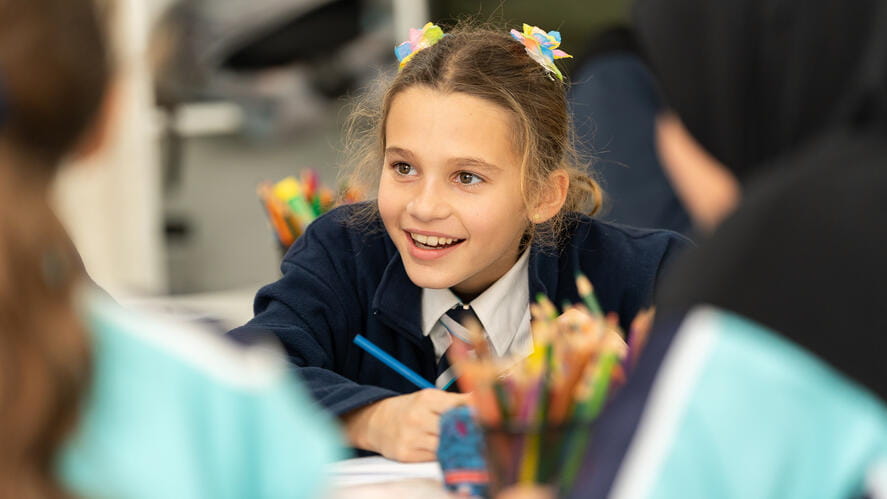We use cookies to improve your online experiences. To learn more and choose your cookies options, please refer to our cookie policy.
Admissions Are Now Open for 2025 - 2026!
Please contact our Admissions team for next steps.

‘Books are the quietest and most constant of friends; they are the most accessible and wisest of counselors, and the most patient of teachers’. -Charles W. Elio-
The importance of reading cannot be stressed enough.
Reading is essential to your child’s all-round growth and development, as well as their success in school. That’s why, at NAISAK, we place reading at the heart of our strategic approach to Early Years and Primary education.
Not only does reading give our students greater access to our curriculum, but it also develops their communication and language skills. It opens doors to new worlds, too, igniting imaginations and sparking lifelong passions.
The benefits of reading are many – and we cover these in this article.
Studies show that reading for pleasure has a big impact on a child’s learning.
Children who read every day perform better in reading tests than those who do not. They also develop a broader vocabulary, have better general knowledge, and demonstrate a wider understanding of other cultures.
In fact, research shows that reading for enjoyment is more likely to determine whether a child does well at school than their social or economic background.
Reading helps your child discover the world
Reading can teach your child anything and everything. It unlocks new interests, opening their eyes to different places, people, and ideas. It also gives our students an early understanding of alternative perspectives, broadening their horizons.
Reading stimulates imagination and creativity
When we watch a film or stream a programme, all the information is given to us on screen – we don’t need to imagine anything. A book, however, is simply words on a page. Our children have to use their imaginations to bring these stories to life.
Reading improves vocabulary and communication
Reading books develops our children’s vocabularies and enhances their spelling skills. Knowledge gained through reading something they enjoy stays with them – and doesn’t feel like hard work. Regular reading also develops written and spoken communication skills.
Reading builds confidence and relationships
A positive reading experience gives our children confidence. Reading has lots of social benefits, too. We love to see our students talking to their classmates about a story they’ve read or enjoyed listening to.
Reading improves focus
Being able to focus is essential to our students’ learning and wellbeing. Reading focuses a child’s attention entirely on the task at hand, immersing them in information and improving their concentration and memory.
Reading is an integral component of the NAISAK curriculum. We place great emphasis on the importance of reading skills, illustrated by the fact our entire school day has been adapted to give our Primary students dedicated time to read.
How have we done this? By extending the morning registration period by 20 minutes, with a slightly shorter first lesson. This means our Primary children start each day reading with their teacher, learning support assistant, or buddy – or by themselves.
All our teachers have space in their timetable to support students who need extra help with their reading, too. This ensures every child makes fantastic progress through Primary school.
We believe that learning to read is about listening and understanding, as well as working out what is printed on the page.
From an early age, we expose our children to a wide range of words and themes through regular storytelling. Even if your child doesn’t understand everything, they’ll hear new sounds, words, and phrases, which they can then try out, copying what they’ve heard.
This develops their vocabulary and improves their understanding, which is vital as they begin to read for themselves.
We encourage our parents to play a significant role in their child’s reading journey. You are their most important educator – even more so than their teachers – which is why we emphasise the importance of teaching reading skills both in school and at home.
As your child grows and starts to read, you can nurture their interest in books. Find out what they like, help them find stories that are engaging and fun, and spend time reading the books they bring home from school.
Start early
It’s never too early to start reading to your child. Even before they’re born, babies learn to recognise their parents’ voices. The importance of reading to your baby from birth, even for just a few minutes a day, cannot be underestimated, as it gives them comfort to hear your voice and increases their exposure to language.
Read together
Reading together is a healthy and enjoyable family activity. Reading out loud exposes young children to new words that develop their language skills. Interacting with books and people from an early age helps to make the activity into a routine, too.
Read to yourself
If your child sees you reading regularly, they’re more likely to want to do it themselves. Find a book you love and read whenever you get the chance. Your child will learn from – and want to copy – what you do.
Surround them with books
Having a variety of books to choose from is a great way for your child to discover what interests them. Reading something enjoyable will do wonders for their curiosity and reading comprehension – they’ll be skilled, active readers in no time! Get your child excited about reading and they’ll surprise you with their progress.